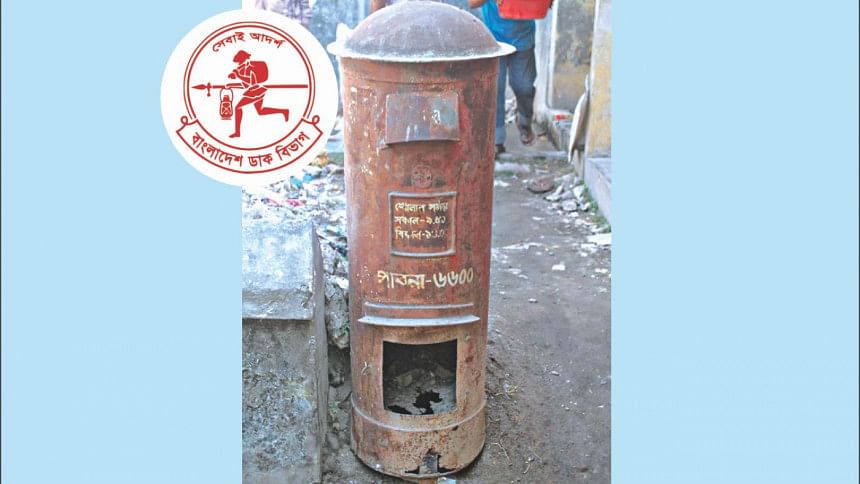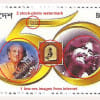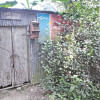Down but not out

There must be some word today
From my boyfriend so far away
Please Mister Postman, look and see
Is there a letter, a letter for me
(The Marvelettes)
This song might give many from our older generation a sense of nostalgia for the days when they used to wait for the postman to know if there was “some word” from their loved ones.
Unfortunately, the art of writing personal letters to family and friends is almost forgotten in this age of mobile phone, email service, messaging apps and social networking sites.
“We don't get personal letters that often now,” said Bakul Chandra Das, a postman from New Market Post Office, as he was looking for an address in the capital's Jahanara Garden on Green Road.
Wearing a trademark khaki uniform and carrying a mailbag, Bakul covers a vast area on foot every day, delivering around two hundred letters, most of them official letters.
“Today I delivered only two personal letters so far. Previously, we used to have a few hundred of them each day. People now talk over cell phones; they do not write letters anymore,” he said. Bakul has served in this position for 18 years so far and has seen the shift in trends up close.
Fortunately, systems have been put in place to ensure the survival of the sector. While a major upheaval hasn't happened as of yet, the industry seems to be readying for adaptation.
IN NUMBERS
Not very long ago, the postal service was a thriving and prestigious means of communications in Bangladesh.
Bangladesh Post Office grew from a 6,667 offices in 1971-72 to 9886 now. Likewise, the number of its personnel also increased from 24,983 to around 40,000 currently. Today's post offices offer some 30 types of services and cover a total route of 51,000 km.
The postal service took a new turn in 1980 as new post offices were constantly opened and new services introduced every year. Services like the Guaranteed Express Post (GEP) and International Express Mail Service were introduced in 1984.
To provide training to officers and staff, a Postal Academy was established in Rajshahi in 1986 and then gradually some more postal academies were established across the country.
Data from the Bangladesh Post Office reflects the institution's significance. Each post office serves around 15,000 people in 15 square km areas and each employee of the department serves 3,760 people.
But technological development has drastically changed people's way of personal communication.
Against the 41 crore ordinary letters the postal department handled back in 1983-84, the number fell to 27 crore in 2000-01, a couple of years after mobile companies started their operations in 1997.
In last financial year (2015-16), the number of ordinary letters dropped even further to a record low of 5 crore only.
To motivate people to write letters, postal departments adopted a slogan urging citizens to 'write letters to your dear ones, it is permanent'. But this has been to no avail.
The digital wave has apparently been slow to reach this sector but plans are in place to remedy this.
EMBRACING CHANGE
Postal officials said the digitisation process of the postal service basically started in 2008 with four post offices.
There was a legal barrier to introducing new services as the postal service was a traditional service. The Post Office (Amendment) Act, 2010, was passed in parliament paving the way for the postal department to widen its horizon.
“Since then we have started digitalisation with a number of new services. If everything remains on the right track, the whole postal department would be made digital with a promise of better services,” Sudhangshu Shekhar Bhadra, additional director general of Bangladesh Post Office told The Daily Star.
He said many rural post offices of the country have already been turned into e-centres following a government directive to do so.
Bhadra said rural people get numerous services, including internet surfing, remittance transfer, video calls, filling up of applications for admission to colleges and universities, and gathering information about agriculture, education and health.
On 16 August, 2000, post offices initiated electronic mail services. Since 26 March of 2010, the post office has also launched Electronic Money Transfer Service (EMTS).
To make the best use of its human resources in a changing scenario, Postal Academy in Rajshahi is now offering training on e-commerce, process automation and mail routing and circulation.
From its inception in 1982, the academy has conducted around 500 courses attended by around 5,500 officers and staff.
“Postal department wants to capture the opportunity of e-commerce, capitalising on the built-in expertise of mail," said one of the academy's instructors, Hussain Syed Gowhor.
Post officials said the services are adapting with changing times and so are the employees. For example, there was a post for “radio inspector” whose job was to make sure everyone with a transistor radio had a valid license to own and use it. Now the position is no longer required and employees can opt for retraining.


 For all latest news, follow The Daily Star's Google News channel.
For all latest news, follow The Daily Star's Google News channel. 








Comments